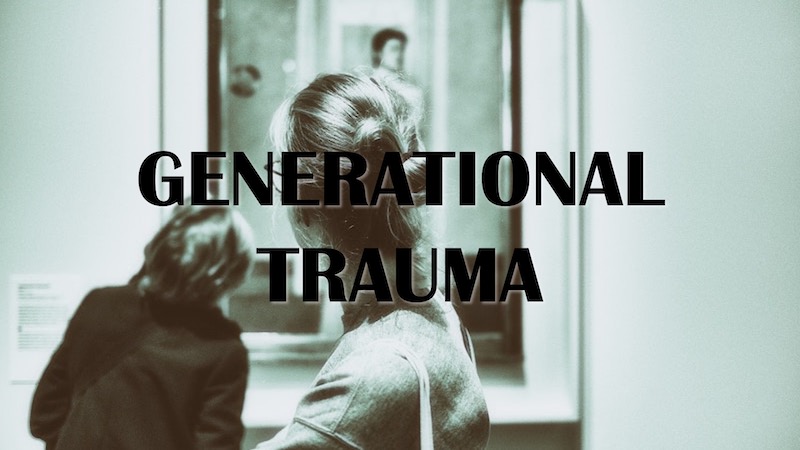Using the memoir technique to access generational trauma
- 19 May 2023
- Posted by: Michael H Hallett
- Category: Generational trauma , How-to & step-by-step ,

One of the simplest techniques for breaking into the heart of your family’s past is memoir writing. You don’t have to write a whole book. You can pick out the moments when you know—or even just suspect—that something traumatic lurks there and dive into what Suzannah Lessard calls “the great, groaning novel of the family.”
“The great, groaning novel”
You can write from anyone’s perspective. You can be omniscient, or dive into a specific family member’s Point of View (POV). Go on, they really won’t mind. You can even combine this exercise with the 360° evaluation technique to get a fuller picture.
“What came to mind was a sense of the great, groaning novel of the family, an unfolding story of which I was irrevocably a part and to which I was committed. Being committed meant believing in the humanity of the participants, and believing there was a truthful way to know the story that would restore meaning and reveal love.”
—Suzannah Lessard, The Architect of Desire
The aim is to break into a stream of consciousness where you access the generational traumas that are still coursing through your DNA.
Remember that this isn’t an intellectual task. It’s about feeling into your family’s emotional truths—particularly, the truths it was ashamed of and desperately tried to bury.
Memoir guidelines
Here are three simple guidelines for memoir writing:
- I would recommend writing between 300 and 500 words for each vignette. It’s long enough to force something to the surface and short enough to keep things concise. If you find that the words start flowing and you race over the limit, just go with it.
- I’d also recommend that you write it as quickly as possible to keep the energy of the writing session flowing. Don’t worry about grammar, literary aesthetics, or spellchecking. You can clean those up afterwards.
- If you have any memorabilia like old photographs, diaries, newspaper clippings or even pressed flowers, handle them. Feel them. Be as tactile as possible. Or put on some music that you know your ancestors loved.
Memoir sample
I’ve included a sample of my own memoir writing below.
The backstory is that when I was growing up, my father usually cooked dinner. And when it was ready—with food piping hot and plates always gently warmed—he became angry if the whole family didn’t immediately scamper to table to appreciate what I’m pleased to report was very good home cooking.
But it took me decades to associate that traumatic memory of needing to get to the table with a childhood story of his own that he recounted, I cannot remember when.
When I did, this is what happened. See how Suzannah Lessard’s “humanity of the participants” emerges from what was previously an oppressive childhood memory.
Punctuality
For Peter, Christmas was about punctuality. If dinner was supposed to be served at 2pm, then 2pm it had to be. Not 1.50pm. Not 2.10pm—and certainly not 4.10pm.
It went back to growing up with his stepmother’s family after his father left. Theirs was a sprawling family with assorted aunts, uncles, and other fringe relatives, like a collection of ramshackle outbuildings on what had once recognisably been a home. It was bad enough that Peter wasn’t related to them by blood. Sometimes he felt he wasn’t even related to them by biological species.
Aunt Agatha
The most distant of these distant relatives was Aunt Agatha, an ancient specimen with a love of melodrama.
Every year, it happened—every Christmas. Just as the cry went up, “dinner’s ready!” and Peter hurried to take his place at table, amid steaming plates of turkey, potatoes, and bread sauce—which he dolloped onto his sprouts—Aunt Agatha would give a shudder, exclaim that this would be her last Christmas on earth, and pass out in the dining room doorway.
The trifle
By the time Aunt Agatha had been revived with laudanum and smelling salts—this is going back a while—the meal was stone cold. Various nervous wrecks had to be calmed down, oiled with sherry, and restored to normal working order. By the time the meal was served, only the trifle, which was meant to be cold, was really tasty.
The year Aunt Agatha died felt like the best Christmas present Peter could remember. They finally got to eat a lovely, warm meal. Yet, when it came to the trifle, that stone cold trifle, suddenly Peter felt a lump in his throat. He never ate another trifle without wishing he’d seen Aunt Agatha, just once more, fainting in the doorway with absolute punctuality.
Next steps
For further resources on generational trauma, both free and paid, please click on this image.
Photo by Debby Hudson on Unsplash

